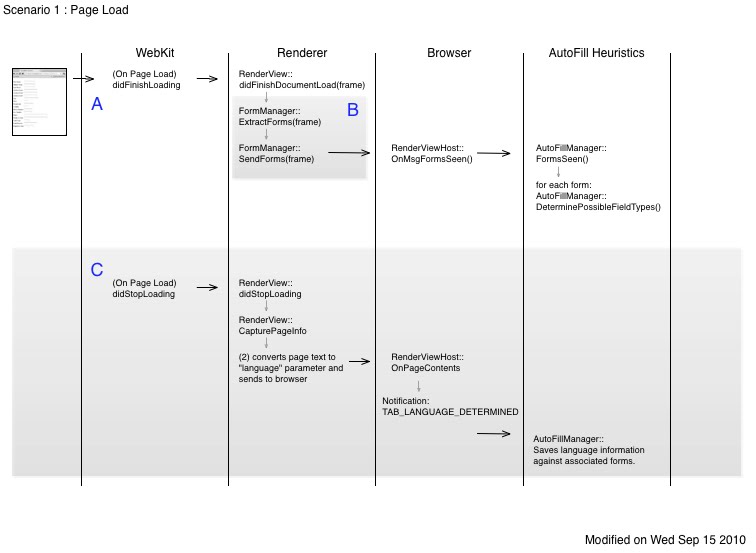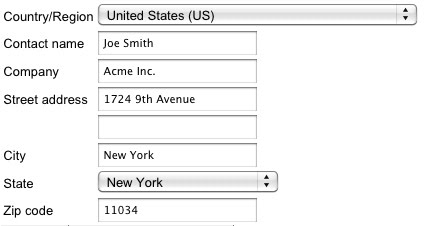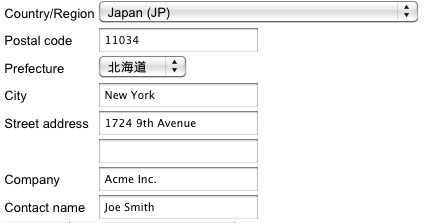Internationalization of Autofill
Objective To extend the Autofill feature in Chrome to better handle non-English and non-US pages and user address and credit card information.
Background
The Autofill feature shipped with Chrome 6. Localization of the Autofill UI was achieved, but opportunities to provide deeper internationalization of the feature exist.
User Experience
Addresses
The addresses stored in Autofill settings/preferences will better adapt to non-US addresses. For example, a Canadian address will present "Postal Code" instead of "Zip Code". Additional fields such as "Prefecture" may be appropriate in Japan.
The "Country" field will use a popup selection of countries. This allows for more dynamic structure for locale-specific address information.
For different regions, such as Japan, additional local-specific fields may be introduced. For example, notice "Prefecture" below. Notice also the renaming of "Zip code" to "Postal code" and reordering of fields:
Form Field Matching
Autofill analyses web pages to find appropriate form fields for filling. This analysis will be enhanced to cover a greater variety of non-English pages.
HTML / JavaScript based UI
Platform-specific UI for Autofill will be deprecated in favor of HTML / JavaScript based UI (aka "DOMUI"). Internationalization of Autofill will apply to this new DOMUI only. Dynamic layout of the Autofill user preferences will be data-driven based on declarative descriptions of locale-specific address formats.
Implementation Data Structures
Locale information is sourced from three places:
- Application Locale. The locale of the running Chrome application.
- Form Locale. The locale information, if any, associated with the HTML page containing the form.
- Address Locale. The locale dictated by the address "Country" field set by the user in Autofill preferences.
Program Flow
During page-load Autofill analyses the forms within the page for fillable fields. Program flow (A) is the current flow of control through the system.
Forms may or may not contain locale information directly, in which case we attempt to derive the locale by other means. The strategy employed is as follows:
1.
The FormManager will be enhanced to pull locale information from the WebKit DOM (see (B) in the diagram below).
Give preference to local information set in the HTML markup.**
For example:**
<form lang="fr-CA">...</form>
<div lang="fr-CA"><form>...</form></div>
<html><head><meta http-equiv="Content-Language" content="fr-CA"/></head>...</html>
Would all yield a Form Locale of "fr-CA".
2. If no locale information is set by the page author, then the textual contents of the page are analysed.
The Compact Language Detection ( src/third_party/cld/... ) module is utilized for this
(see (C) in diagram below)**
.**
3.
URL top-level domain suffix may also be used if other sources of information about locale are not present (not pictured).


